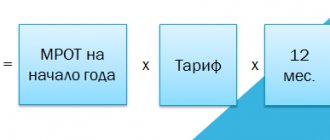Call rules
So, the only basis for summoning citizens for questioning to the tax office as part of tax control measures is ONLY a subpoena from the tax authority. Other calling methods (by phone or instant messengers, for example) are used by tax authorities solely to simplify their activities and avoid unnecessary work. If they call you by phone and persistently ask you to appear, you can safely ignore these requests, this will not be regarded as a failure to appear for questioning at the tax office, or you can agree, wait for the appointed day, call 5 minutes before it starts and swear that I will come later - when , I don’t know yet.
It also happens that those who want to be invited to interrogation at the tax office as a witness are guarded right next to apartments, houses, and in entrances. In this case, again, if the inspectors persistently want to talk to you, we calmly say that now it’s “not your time” and leave the uninvited guests at the door. No one will grab your hands, use wrestling techniques, and even more so, no one will break into your apartment.
IMPORTANT!
It is strictly forbidden to sign the summons and take it into your hands.
Compliance with formalities
They are summoned for questioning. A summons is issued to a specific person. It makes no sense for anyone else to go, even by proxy. They won't accept it.
A phone call, an e-mail, a police officer coming to your wife’s or neighbors’ house is not in accordance with the rules. You have the right not to react. No summons - no summons for questioning.
Advice: If an inspector calls you at work and personally invites you to come, I advise you to be polite and refer to the fact that you are busy and have a large amount of work. Nothing will happen to you for this.
The summons can be sent by registered mail. Tax legislation provides for the rule: any mail item is considered received on the 6th day, regardless of the fact of its receipt. If you receive a summons, you need to go.
How to behave
Let's assume that you end up being interrogated by the inspectorate (due to certain necessity or coincidence). Before doing this, you need to understand three simple things:
- Tax officers are not police officers; they have the right to apply maximum psychological pressure, and only a few know how to do this competently.
- Criminal liability for giving false testimony as part of activities under Art. 90 of the Tax Code of the Russian Federation does not apply.
- You are initially on their territory and, according to their logic, must follow their rules, but nothing prevents you from behaving as you see fit.
Psychologically, you should treat the interrogation at the tax office as calmly as possible; in fact, this is just a conversation with a certain level of formality. It involves at least one inspector conducting the inspection, and often a member of the inspectorate's legal department is present. How many of you have noticed that the inspector is present and the lawyer is present? No? But in vain.
Instructions for successfully completing the interrogation
Regardless of the situation, the outcome of the interrogation depends on the person's behavior. For a successful outcome of the case, you need to follow a number of steps.
Checking the legality of an invitation for interrogation
The call must be official. In the opposite situation, a person may simply not show up to the authority. Paragraph 1 of Article 90 of the Tax Code of the Russian Federation states that the inspector has the right to summon for questioning a person who knows about any circumstances that are significant within the framework of the inspection.
This article does not say anything about how exactly a person is summoned for questioning. The notification procedure is regulated by Federal Tax Service letter No. AS-4-2/12837 dated July 17, 2013. This act contains recommendations for summoning a person to the authority to provide evidence.
A person needs to go for questioning only if he has received an official invitation. It is not a call, an email, or the arrival of a local police officer. A formal summons is the receipt of a summons. It is sent with a receipt confirmation. That is, the tax authorities know for sure that the payer received the document. If he fails to appear for questioning in this case, it will be considered a violation. Responsibility is imposed on the basis of Article 128 of the Tax Code of the Russian Federation. Failure to appear will result in a fine of 1,000 rubles.
FOR YOUR INFORMATION! What to do if the taxman calls you? This is a personal decision of the entrepreneur. He may or may not appear at the event. In the latter case, you can simply refer to being busy. In this case, no liability can be imposed on the payer, since the invitation to the request was informal.
Call a lawyer
If the payer has concerns, it is better to go to a lawyer. The latter will analyze the legality of the inspector’s actions and help get out of the situation with minimal losses. However, this step is not always necessary. If a person understands for sure that the interrogation will not lead to any serious problems, he can cope with the problem on his own.
Direct preparation for interrogation
The interrogation consists of two main parts: questions and answers to them. The payer is advised to prepare his answers. This will help you take control of the situation and avoid potential problems. To prepare, you can use Appendix No. 1 to the recommendations (letter of the Federal Tax Service No. ED-4-2 / [email protected] dated July 13, 2022). It contains a list of questions that may be asked during interrogation. It is divided into two types:
- For CEOs.
- For ordinary workers.
There are 80 questions that are recommended for use during interrogations.
IMPORTANT! If the situation is complex, you can involve a tax consultant or lawyer in preparation.
Coordination of answers to questions with partners
The check may be counter. In this case, both the company itself and its partner are checked. In such circumstances, the testimony of the counterparties must match. In particular, it is necessary to agree on the indications for these key positions:
- Circumstances of meeting the counterparty.
- Features of signing a contract.
- Initiator of transactions.
FOR YOUR INFORMATION! Simultaneous verification of two counterparties is a fairly common practice. Therefore, this risk must be taken into account.
Inspector's visit
The payer must come to the structure at the hours specified in the agenda. You need to take your passport and summons with you. Some lawyers recommend being a little late for your appointment. This is needed to reduce interrogation time. Should you follow this recommendation? A person must decide for himself. Sometimes this helps, but sometimes being late only angers the inspector.
Correct answers to questions
A person under interrogation must watch his words. Any incorrect word can be used against the payer. Answers should be brief, addressing only the essence of the question. It is not recommended to provide any unnecessary information.
In addition, the payer must be aware of his rights. He must remember Article 51 of the Constitution of the Russian Federation. It states that a person has the right not to testify against himself. However, if a person exercises this right, he must exercise it at the beginning of the interrogation. If the payer refuses to answer a specific question, this may raise suspicions.
Studying the interrogation protocol
At the end of the interrogation, a protocol is drawn up. You should definitely read the document. This must be done even if time is limited. You need to carefully study each position. It is necessary to check whether the answers to the questions are recorded correctly and whether there is any dangerous duality in them.
If errors are found in the protocol, you need to ask the tax officer to correct them. You can ask to change the wording. The paper must be photographed or transferred to a medium in another way. If photography is prohibited, you can simply rewrite the document. This will help in analyzing the results of the protocol and will assist in further checks.
The protocol should be signed only after receiving a copy of it. A person needs to take into account that after signing the document, he will be taken away. That is, he will not be able to study it again.
Conditions: recording, presence of other persons
The fact is that, in accordance with the provisions of Article 89 of the Tax Code of the Russian Federation, only persons included in the decision to conduct an on-site tax audit have the right to carry out control measures within the framework of the GNP. Thus, all questions during the interrogation at the tax office of the manager are asked only by the inspector; If the inspector's lawyer begins to burden you with questions, directly say that you came here to talk not with him, but with the inspector. In addition, all questions asked by the lawyer must be noted in the comments to the protocol and a comment must be left that they were asked by an inappropriate person.
During the interrogation of the director at the tax office (and any other employee), audio and video recordings may be made. In the cases described above, it can either play in your favor or turn against you. For example, many people like to bring representatives with them - “prompters” (who help give an answer to “forgotten” circumstances). Appearing with a representative in itself is a very painful moment for tax authorities. They try to remove representatives under any pretext.
If your representative begins to be kicked out on the grounds that he does not have the necessary power of attorney, then we get up and say goodbye to the inspectors. We say directly: you are violating my legal right to the presence of a competent specialist, and without him I do not want to talk to you. Fearing the loss of at least some testimony, the tax authorities will definitely make concessions to you.
However, if all questions are answered for the most part by a “prompter” and this is recorded by means of audio and video recording, then such testimony, in judicial parlance, can be “taken critically” and considered biased.
At the same time, I would like to note that if the event is held in the inspection office, where other employees work, ask the inspector to write down absolutely everyone present: these persons are actually present during the inspection and must be included in the interrogation protocol at the tax office. This is done to distract the inspector’s attention and increase the percentage of errors that may be made by the inspector when drawing up the protocol.
Very often, due to stress (yes, inspectors are people too), tax officials forget to put down the date and time of the end of the event - this should be used (!) and try to speed up the inspectors as much as possible (let them play by your rules).
Note from the editors of the channel “Taxes without Pi”
In arbitration practice, there is a point of view according to which protocols of interrogation of a witness at the tax office are not admissible evidence in the case if they are drawn up in violation of paragraphs. 3 p. 2 art. 99 of the Tax Code of the Russian Federation and they do not indicate the start and end times of the event.
Recognition from the top of the organization
As we have already said, interrogation alone does not solve anything, so inspectors will begin to collect circumstantial evidence. To do this, the head of the organization and the chief accountant will be called in for questioning. They will be asked approximately the same questions, but interrogated separately.
What is the best way to respond to interrogation for the head of an organization:
1. Have you signed agreements or other documents with Resus LLC (TIN/KPP)?
Yes (at the same time, controllers must demonstrate which contracts and documents they have in mind, because you may have a lot of them).
2. Did you personally meet with the head of Resus LLC (TIN/KPP) when discussing the terms of delivery and when signing the contract (No.)?
I do not remember.
3. Who initiated the deal?
Rhesus LLC (I don’t remember, maybe you have hundreds of contractors and it’s impossible to remember them all).
4. Does Factor LLC (TIN/KPP) have documentary evidence of the authority of the representative of Rezus LLC (TIN/KPP), copies of his identity document?
I don’t know (I don’t remember; you really can’t remember all the papers).
5. How did you receive primary documents from Resus LLC (TIN/KPP)?
I don’t remember (the director may not know such nuances). Documents are usually delivered by courier, or delivered along with the goods (the accountant should know how the “primary” item usually “arrives”).
6. Do you know the actual location of Resus LLC (TIN/KPP)?
I don’t remember (maybe this counterparty is from a different region altogether and you have no way to check the actual location of the company).
It is better to answer most questions with “I don’t remember” or “vague” phrases. Indeed, in reality, without knowing these questions in advance, you are unlikely to be able to answer them clearly and without the necessary papers, dictate by heart the actual address of the counterparty, or remember how you signed the contract in 2009! After all, this is not your only supplier, there are hundreds of others, and you cannot remember all the details for every transaction.
In addition, the head of the organization is not obliged to personally meet with the head of the supplier’s company, since, according to the law, transactions can be concluded through the exchange of documents (Resolution of the Federal Antimonopoly Service of the Moscow District dated September 30, 2010 No. KA-A40/9677-10 in case No. A40-69666 /09-118-555). If the organization has stocked up with a photocopy of the passport of the head of the counterparty, then you can answer the question about a personal meeting positively, but if not, then it is better to say that you don’t remember. At the same time, the controller does not have the right to demand that this document be shown to him, since it does not serve for the calculation and payment of taxes and does not confirm the correctness of calculation and timely payment. Therefore, if an inspector demands to provide him with documents that would confirm that the taxpayer exercised due diligence when choosing a counterparty, you have the right to refuse him.
Dangerous moment
The tax inspector does not have the right to demand the submission of documents that confirm that the taxpayer exercised due diligence when choosing a counterparty. Since these documents do not serve for the calculation and payment of taxes and do not confirm the correctness of calculation and timely payment.
Please note: when asked who initiated the transaction, you should not answer that it was your company. Otherwise, questions may start pouring in about how you found them, how you contacted them, and whether there were recommendations from partners. At the same time, controllers will check whether they have a website or advertising in the media. The absence of this information will lead you to believe that you yourself created this “fly-by-night” to obtain an unjustified tax benefit. If you clearly answered that the initiator was Rhesus LLC, then this answer can be justified by saying that your organization does not have a marketing and advertising department, so most partners contact you on their own.
As you can see, these are tricky questions, so it is better for the manager and chief accountant to discuss in advance how to answer so as not to contradict each other.
How to answer questions
If you are not sure about something, forget about words like “I don’t know, I don’t remember.” You should always say that “due to the length of time that has passed, at the moment it is difficult for me to answer your question comprehensively. But if necessary, I can provide all the documents/explanations of interest on this issue.”
Often, inspectors like to resort to various tricks, for example, very cleverly distorting the content of questions. So, the inspector can verbally say something like “Are you aware of the circumstances of the transaction with the counterparty Romashka?”, but the received answer that the interrogated “does not remember this” will be entered into the question “Are you aware of the organization Romashka LLC?” "
The meanness of this method lies in the fact that after 50–70 questions asked during interrogation at the tax office, the interrogated person will forget the original meaning of the question posed and will not notice the substitution. In this regard, it is advisable to require the inspector to print out each page of evidence and evaluate the issues directly during the control event, and not after, so as not to be fooled. Or read the protocol very carefully after its completion.
During interrogation
You can be a little cunning - come to the interrogation later than the appointed time, having previously called the inspector by phone and, apologizing, citing urgent matters. The inspector may have less time to talk with you.
Before the interrogation begins, the inspector is obliged to explain your right to use Article 51 of the Constitution of the Russian Federation “No one is obliged to testify against himself, his spouse and his close relatives.”
The tax office also uses a summons for questioning as a psychological move. To increase tension, the interrogation can take place in an office in the presence of a group of tax officials, nodding their heads condemningly. Don't give in to pressure! Ask the inspector: are these strangers or interrogation participants noted in the protocol?
Don't show your excitement and tension! Remember that interrogation has become a routine tax control procedure. You are not the first and not the last! Thousands of witnesses are called in for questioning. And your task is to be convinced and convey to the inspector that the company does not commit any violations, all transactions were concluded in strict accordance with the law.
Keep your answers short and clear. Nothing extra – just an answer to the question. Think about the purpose of the question and do not rush to answer. If the question is unclear or inconvenient, do not hesitate to ask again. Use this time-out to think.
Be careful with specific answers, don’t give assurances, don’t think out loud. Vague answers can be easily challenged in court.
If the question seems suspicious, think and answer vaguely or generally: “I find it difficult to answer,” “I need to remember, it was a long time ago,” “I need to clarify, bring up documents,” “I can provide information later, since I’m not ready to answer now.” This is better than “I don’t know” or “I won’t answer.”
If you come and change your mind about answering the questions, the inspector has the right to fine you 3,000 rubles for refusing to testify. If you refuse to testify in accordance with Article 51 of the Constitution (against yourself, your spouse and close relatives), the tax authorities have no right to hold you accountable.
But refusal to answer immediately before the start of the interrogation is undesirable, since the tax authorities and the courts may recognize it as confirmation of their assumptions about the violations discovered. In addition, you won’t find out what they are interested in and what the tax authorities have dug up on you.
If a lawyer is present, you have the right to discuss with the lawyer the most appropriate wording of the answer after each question. At the same time, do not allow the wording in the protocol “the lawyer suggested the necessary answer to the question.” It would be correct to say “the lawyer recalled the situation, talked through several possible answers, from which the witness independently chose the correct one.”
Where should the interrogation take place?
Article 90 of the Tax Code stipulates that the collection of testimony from witnesses must be carried out by the tax authority conducting control activities. At the same time, if the witness is sick, disabled or elderly, he can be questioned at his place of residence. In this situation, the Federal Tax Service recommends obtaining consent from such a witness for admission to his home.
If a witness is located geographically far from the regulatory authority that wishes to question him, the tax inspectorate may send a written order to question him to the tax authority at the place of residence or location of such a witness.
Carefully read the interrogation protocol and make adjustments if necessary.
As already mentioned, the results of the interrogation are documented in a protocol, and how correctly your answers are entered into such a protocol largely determines what consequences this event will have for the taxpayer. Do not forget that your testimony is entered into the protocol by the person taking it, so he does it in a way that is beneficial to the controlling authority.
Therefore, before you put your signature on the protocol, you should carefully re-read the entire text of the document compiled (including not only the answers you gave, but also the questions asked). After all, even one word twisted by a tax officer can completely change the meaning of what you said. If your answers to questions are written inaccurately, paraphrased or distorted, the protocol contains phrases that you did not say, the written wording of the question does not correspond to what was voiced, ask the tax officer to make corrections or personally note this in the comments section (write with what wording you do not agree and indicate the ones you need).
Legal experts recommend signing the protocol on each page, and if it is printed on only one side of the sheet, crossing out the blank side to avoid reprinting the text or replacing pages of the document.
How does interrogation work at the tax office?
The event begins with identifying the witness. After this, you must be explained your rights and given a warning about liability in relation to testifying (refusing or avoiding answering questions, providing false information). If technical means of recording will be used during the interrogation, the interrogating officer must inform you about this and reflect this fact in the protocol.
This is followed by the immediate procedure for taking testimony and drawing up a protocol. The final stage of the event is familiarization with the protocol and its signing by a witness. Issuing a copy of the interrogation protocol to a witness is a right, not an obligation, of the tax authority.
Is it possible to refuse to testify? Yes, if such testimony can be used against the person being interrogated or his family members. This rule is enshrined in the Constitution (Article 51).
However, if the head of a legal entity is called as a witness, he cannot refer to the above provision of the Basic Law, since he does not represent himself personally, but the organization entrusted to him. Unreasonable refusal to testify entails the imposition of a fine on an individual in the amount of three thousand rubles.





